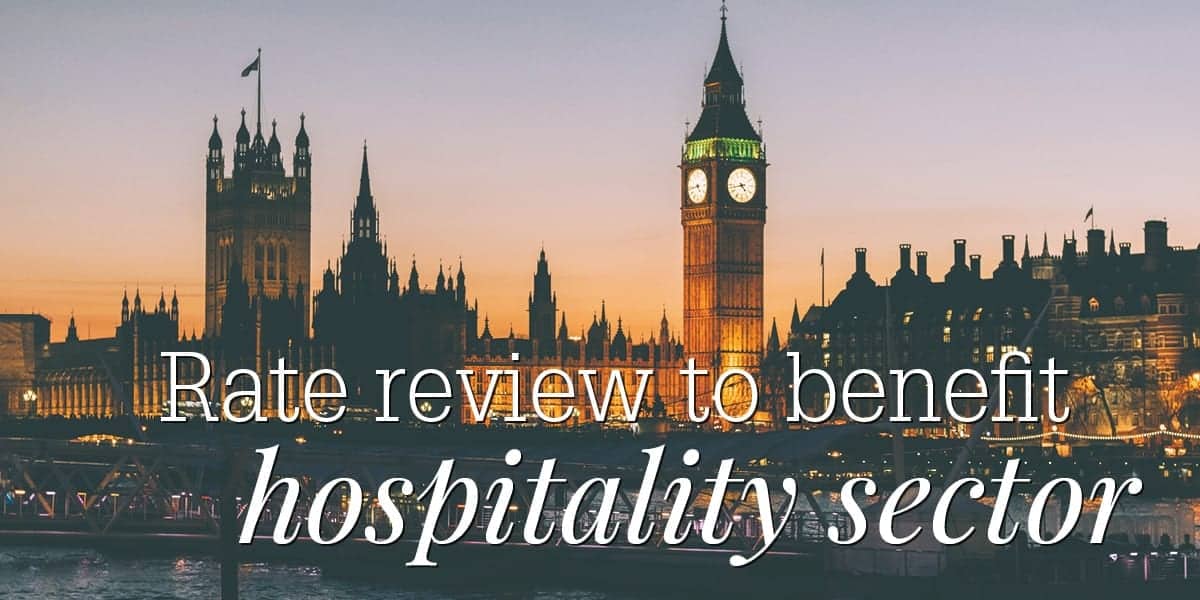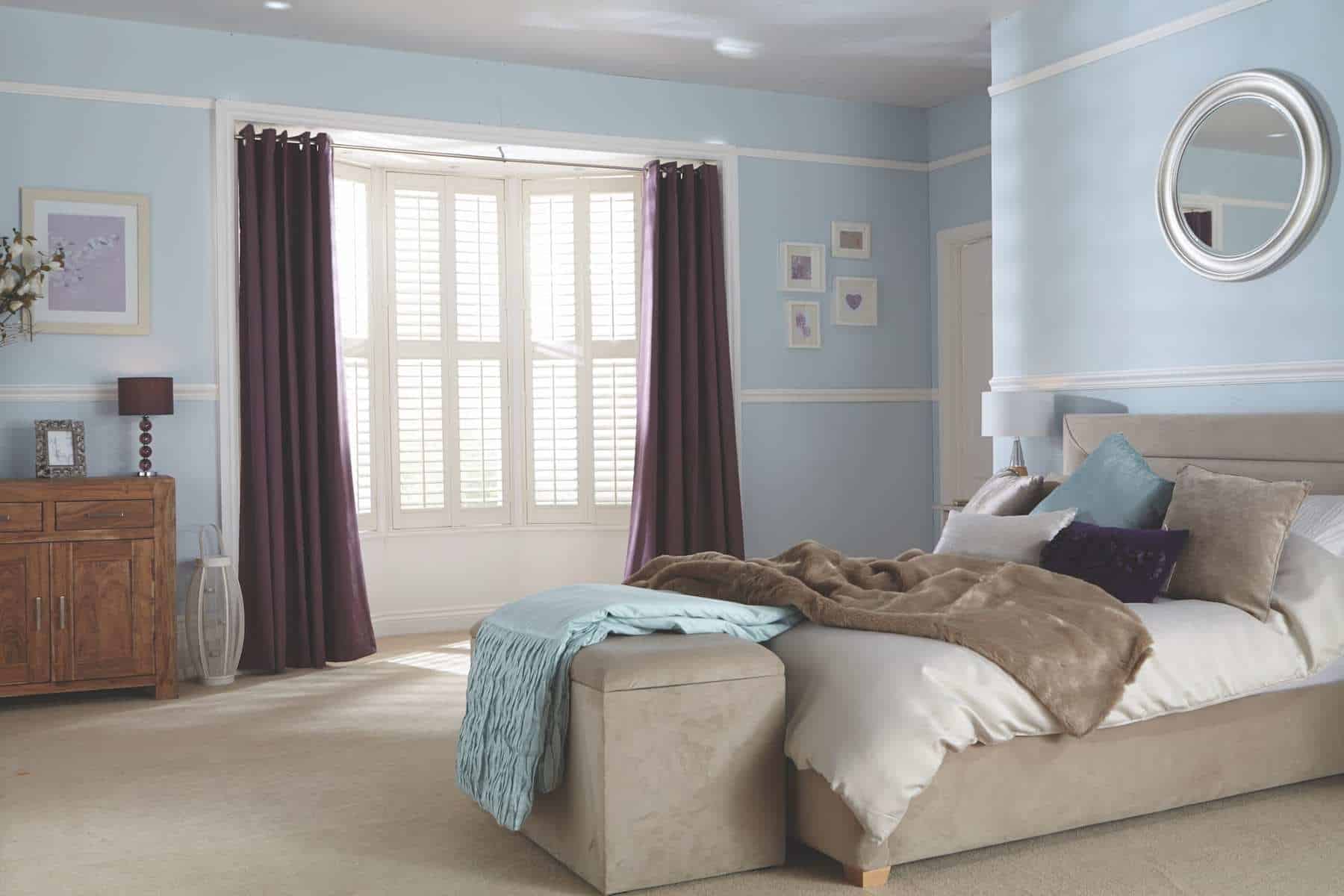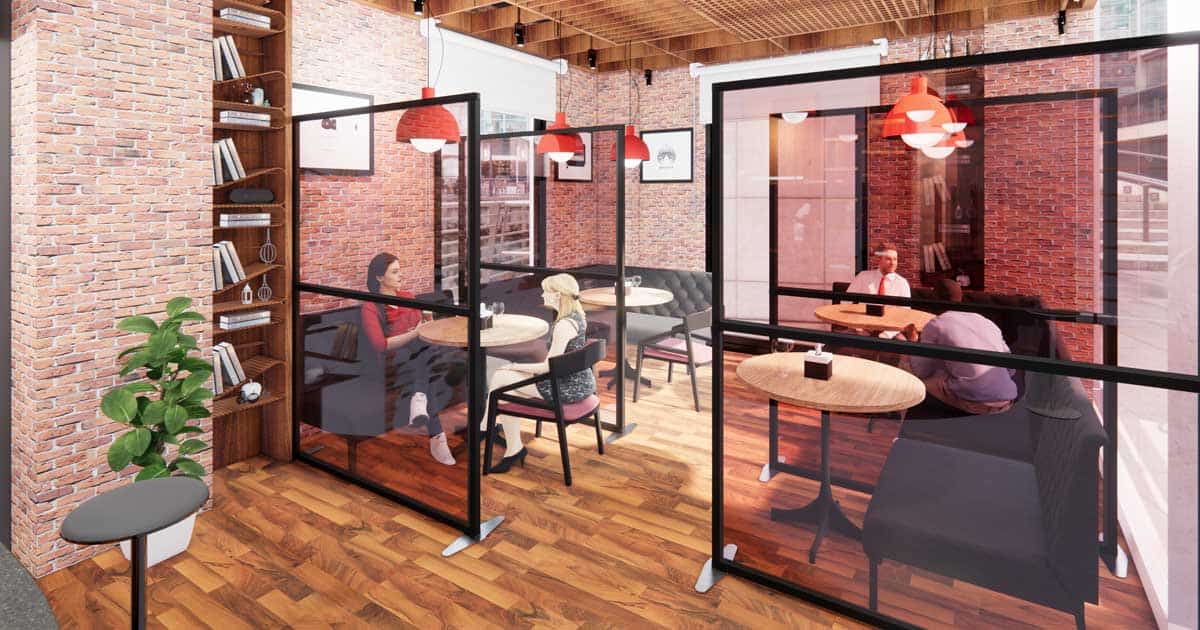
Rate review to benefit hospitality sector
A 50% discount in business rates for struggling independent businesses, announced in the Queens’ speech has been welcomed across the industry.
A long-awaited fundamental review of the UK business rates system was announced in December 2019 following the General Election.
Full details of the review were still being awaited as Innkeeper went to press.
UKHospitality chief executive Kate Nicholls said:
“Improving the business rates system is paramount and the Government commitment to a review is very welcome. Rates have arguably been the single biggest barrier to growth for hospitality and a shake-up of the whole business tax system is overdue.
UKHospitality has been pushing for a review vocally and persistently for years so it is great to see the Government listening to our message.
“Additional support for pubs, which have been hit so hard by rates in recent years is a great first step. This support does need to apply to the whole of hospitality, though, and we will continue to push the Government to ensure that the business tax system is fit for purpose in the 21st Century,” she said.
“The Government’s agenda is clearly built around supporting businesses. This is very welcome, not least because we know that hospitality is a vehicle by which regeneration and economic prosperity can be delivered to the UK’s high streets, seaside towns and cities across the UK.”
She added:
“We are also pleased to see the Government move towards an immigration policy which supports the economy and businesses. A fair and managed, three-tier system at all salary and skilled levels, hand-in-hand with investment in skills and training, is a must. This will avoid exacerbating labour shortages, keep the economy at full strength and allow hospitality to continue its work boosting the domestic workforce. An immigration system which is evidence-led and values skills at all levels is essential for hospitality and the wider economy.”
The iniquities of the rate system were spelled out last year by CAMRA.
“Businesses in England are required to pay a tax to their local council based on the value of the property that they occupy – these are called business rates.
In 2016, 40% of pubs were handed an increase in their business rates bill – the result of which is that many have had to put up their prices for consumers to cover their rates increases, or in some cases close for good.”
Teaming up with lobby group Save Our Pubs, the campaign group said:
“Pubs currently pay 2.8% of the business rates bill but only account for 0.5% of total business turnover, which is an overpayment of around £500 million by the sector each year. We need a full review of how the business rates system works – this needs to look at how to address the current system where pubs are unfairly burdened.
“Businesses in England are required to pay a tax to their local council based on the value of the property that they occupy – these are called business rates. In 2016 40% of pubs were handed an increase in their business rates bill – the result of which is that many have had to put up their prices for consumers to cover their rates increases, or in some cases close for good.
“Pubs currently pay 2.8% of the business rates bill but only account for 0.5% of total business turnover, which is an overpayment of around £500 million by the sector each year. We need a full review of how the business rates system works – this needs to look at how to address the current system where pubs are unfairly burdened.”
Following the announcement of the fundamental business rates review in December, CAMRA Chairman Nik Antona said: “We welcome that the Government has followed up its manifesto commitment and will look to reform business rates, as well as bringing in an additional discount for pubs.
“Pubs contribute positively to the UK, socially, culturally and economically. We look forward to working with Government and Parliament to ensure the reforms mean pubs are treated fairly.
“CAMRA will continue to push for a lower rate of tax on beer served in pubs and will be bringing forward proposals in the new year.
“Finally, we urge the government to complete its statutory review of the Pubs Code and ensure that it is fit for purpose.”
The British Institute of Innkeepers (BII) gave its own favourable response to the news. CEO Mike Clist commented:
“The BII welcomes the news today that pubs will see additional support from Government via further business rate relief in 2020.
“All retail businesses with a rateable value of £51,000 or less, including pubs, restaurants, cafes and music venues will see an increase in their business rate discount from 33% to 50%.
Independent pubs will also see a further £1,000 cut to their rates in addition to the discount.”
He added:
“We are delighted that the new Government has recognised the importance of supporting high street businesses, and in particular those in hospitality who provide so much help to their local communities.
“Our members do more than just sell goods and services – they are a haven for the lonely and provide employment and a fantastic career opportunity for so many local people. They deserve the financial support that this announcement gives, to ensure that they can continue to be the vital hubs of the community that they are.”
Commenting on the Queen’s Speech, British Beers and Pubs Association (BBPA) chief executive Emma McClarkin said:
“Pubs are the heart of our communities, so the commitment in the Queen’s Speech to a change in the business rates system is welcome. Three pubs a day close their doors for good due to the tax pressures they face. It is right that the Government is addressing the issue of business rates since pubs pay 2.8% of the total rates bill despite accounting for just 0.5% of turnover. Reducing rates for pubs is an important step in the right direction. Such reliefs are vital until the fundamentally unfair system is completely overhauled.
“However, with 7 out of 10 drinks sold in a pub being beer, it remains the case that a freeze or cut in beer tax at the next budget is the most direct way of helping pubs stay viable, so we hope that the commitment to a review of alcohol duties encompasses this. It would also show that the Prime Minister is listening to the 230,000 supporters of the Long Live the Local campaign, which calls on the Government to cut beer tax to support local pubs and the communities they serve. It is imperative the new government recognises the strength of feeling on the matter.
“We await the detail on the proposed points-based immigration system, but pubs are facing a serious skills shortage and clearly need access to talent from abroad. It is vital then that any post-Brexit, points-based immigration system recognises this, which is why BBPA will continue to be the leading advocate of the need for such access to talent for our sector.”
The Government estimates some 90% of independent businesses in the UK will qualify for the relief, applicable to retailers with a rateable value below £51,000 and giving them a saving of up to £12,500.
The news coincided with the disclosure by the ONS that the number of pubs and inns in the UK had shown a net increase for the first time since 2010. The rise in March bucked the pub closure trend of the past few decades.
Numbers of staff employed by pubs and inns still fell last year, however. Those employing fewer than 10 staff saw number fall from 104,000 to 103,000 according to the ONS. And supporting government projections that smaller pubs were closing at the expense of a growth in larger one, the number employing between 10 and 24 staff rose in 2018 by 2,000 to 185,000
Employment in pubs and bars by employee size-band
| fewer than 10 | 10 to 24 | 25 to 49 | 50 or more | |
| 2001 | 176000 | 168000 | 73000 | 28000 |
| 2002 | 179000 | 157000 | 76000 | 29000 |
| 2003 | 173000 | 147000 | 78000 | 27000 |
| 2004 | 164000 | 150000 | 80000 | 26000 |
| 2005 | 164000 | 153000 | 78000 | 25000 |
| 2006 | 164000 | 148000 | 79000 | 27000 |
| 2007 | 164000 | 155000 | 84000 | 23000 |
| 2008 | 160000 | 156000 | 86000 | 22000 |
| 2009 | 149000 | 147000 | 93000 | 29000 |
| 2010 | 135000 | 143000 | 93000 | 22000 |
| 2011 | 130000 | 137000 | 96000 | 22000 |
| 2012 | 128000 | 145000 | 99000 | 22000 |
| 2013 | 121000 | 158000 | 95000 | 20000 |
| 2014 | 118000 | 172000 | 109000 | 21000 |
| 2015 | 115000 | 180000 | 124000 | 30000 |
| 2016 | 108000 | 183000 | 122000 | 27000 |
| 2017 | 104000 | 183000 | 128000 | 33000 |
| 2018 | 103000 | 185000 | 127000 | 35000 |
The cautious welcome from the industry to the 50% rate cut follows years of lobbying against the iniquities of the business tax structure.
In 2017 The Campaign for Real Ale is calling on the Government to stop viable community pubs from being driven out of business by introducing a £5,000 annual reduction on their soaring business rates.
Pub closures
According to a House of Commons library briefing, in 2017, there were 48,350 public houses in the UK. 22,650 of these pubs were independent, 14,700 are owned by Pub Companies, and 11,000 were owned by breweries. The number of pubs has been decreasing steadily for several decades. From 2000 to 2017, pub numbers have declined by 12,450, or 20%. More recently, 2011 to 2017 saw pub numbers fall by 12%. Regionally, the decline of pubs has varied. In Northern Ireland, pub numbers have fallen by 35% from 2001-2018. The smallest decline was in the South West, where numbers fell by 18%. In 2018, there were 59 pubs per 100,000 people in the UK. Regionally, there was some variation. London has 40 pubs for every 100,000 people, whilst the South West has 76 pubs per 100,000 people. The decline of pub numbers has not led to a decline in overall employment numbers in pubs. There was an increase in employment in pubs by 1% from 2001 to 2018. The data does show, however, that employment in small pubs (employing fewer than 10 people) has fallen by 41%.
As a direct result of industry lobbying the government launched an inquiry into business rates in February last year, and in June 2019 announced an increase into property valuations. Local Government Minister Rishi Sunak MP said:
We’ve listened to businesses asking for more frequent revaluations and are now acting so their bills will more accurately reflect current property values.
By bringing forward the next revaluation to 2021, we are making sure businesses can benefit from the change as soon as possible.
The inquiry was welcomed by industry representatives. UKHospitality for example described the existing system as “completely out of date”, and “disproportionately crippling hospitality”.
| Total number of pubs and inns in the UK since 2000 (‘000s) | ||||||||||||||||||
| 2000 | 2001 | 2002 | 2003 | 2004 | 2005 | 2006 | 2007 | 2008 | 2009 | 2010 | 2011 | 2012 | 2013 | 2014 | 2015 | 2016 | 2017 | 2018 |
| 60.8 | 60.7 | 60.1 | 59.4 | 59 | 58.6 | 58.2 | 56.8 | 54.8 | 52.5 | 55.4 | 54.7 | 53.8 | 52.5 | 51.9 | 50.8 | 50.3 | 48.4 | 47.6 |
Source: ONS
Impact on inns
Inns themselves will fall under consideration in the rating valuation review. At present for public houses where six or less bed spaces are utilised for letting purposes, the receipts generated by the lettings are added to the food FMT (fair maintainable turnover) and valued as part of the food element.
In cases where letting accommodation exceeds six bed spaces an appropriate judgment as to the correct rate percent to be applied to the fair maintainable turnover in accommodation sales will have to be made. The appropriate percentage will be derived from the rate determined for the fair maintainable turnover in food sales (see above) plus an addition of from zero to 3%, depending on circumstances.
According to the Valuation Office Agency, in cases where the annual fair maintainable turnover in food does not exceed £175,000, accommodation (if qualifying for separate valuation) will be valued within the range of 6% to 9% according to the circumstances.
In considering the appropriate additional percentage, account will have to be taken of whether the accommodation is an integral part of or ancillary to the main business, the type and class of the letting bedrooms, the number of bedrooms available, the level of receipts, the proportion of these receipts as compared with the total receipts of the business, the degree of occupancy and the probable profitability of the letting business (bearing in mind additional staffing, advertising, etc attributable solely to the business of the letting accommodation).
Optimism grows for the hospitality sector
The UK’s hospitality sector is now best placed for support in 2020, following a series of UKH policy wins and Government pledges, according to Kate Nicholls
UKHospitality chief executive Kate Nicholls told 1,200 industry leaders the association welcomed government commitment to supporting the sector.
“This year, we have achieved the ambitions we set out at last year’s Christmas Lunch, and more besides. We have a new Government elected on a manifesto that answered our key asks for hospitality: reform of business rates, support for high street hospitality, a cut in employment taxes and reform of NICs.
“The Government is promising action to tackle digital disrupters and a modern, fair and controlled three-tier immigration system for all skill levels. This is what UKHospitality called for and it is what our sector needs.
“This year, we have secured some significant wins, saving the sector billions of pounds in avoiding considerable additional costs that would otherwise have hit businesses had Ministers not heard our message. Next year, we can expect support from a regime which will promote productivity and incentivises investment in people and property; along with an industrial strategy which puts hospitality front and centre in the drive for growth.”
Pub numbers reverse decline
In a report released last month by the ONS for industry trends in 2019, the number of pubs and bars in the UK increased in 2019 by 315%
The previous decade was tarred by the constant site of community pubs closing their doors for good as the sector struggled for growth. Now however, it seems that innovative trends within the sector are revolutionising the industry.
In addition to the increase in the number of pubs and bars in the UK, turnover in the sector increased by £847m (3.8%) in 2017.
Real turnover in the latest year of data is at its highest level since the financial crisis of 2007 to 2008.
Matt Preisinger, head of marketing for Brewhouse & Kitchen says:
“After an incredibly tumultuous decade, the industry is at long last seeing growth in the number of sites. The British relationship with the pub is one of this countries great traditions, and it has been incredibly sad to see so many sites having to close their doors for the last time. Now, however, there is light at the end of the tunnel, and the British pub is roaring yet again.”
He adds: “The growth in turnover is in part due to our continued traditional relationship with our local community. However, what has driven fantastic growth is the innovation that has driven the sector, and will continue to do so. On-site brewing keeps flavours within pubs fresh and customers coming back for more. The rise of craft ale in particular is really appealing to those who seek innovative flavours, and the extraordinary rise in regional micro-breweries is testament to this.”




